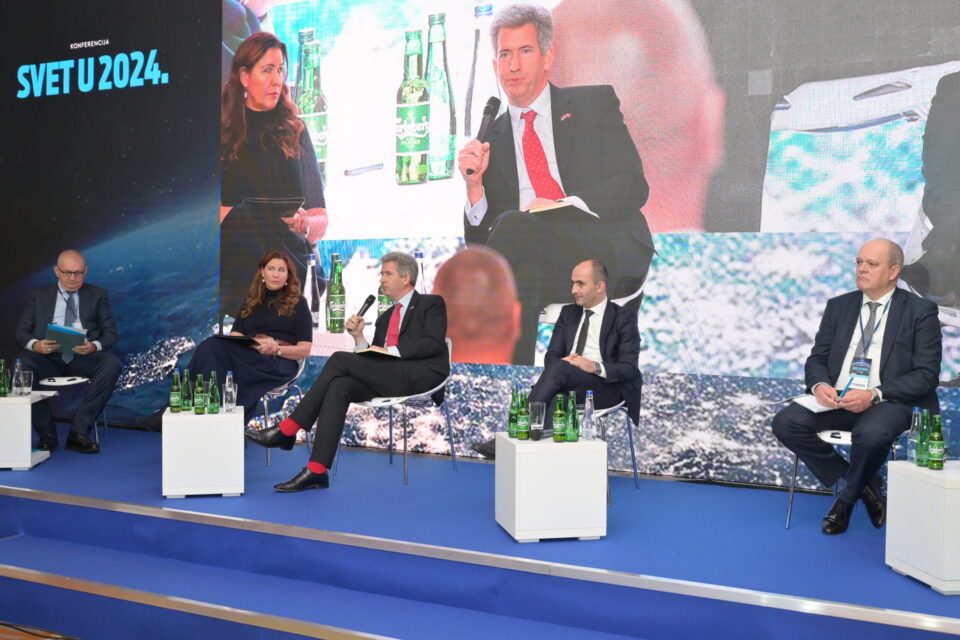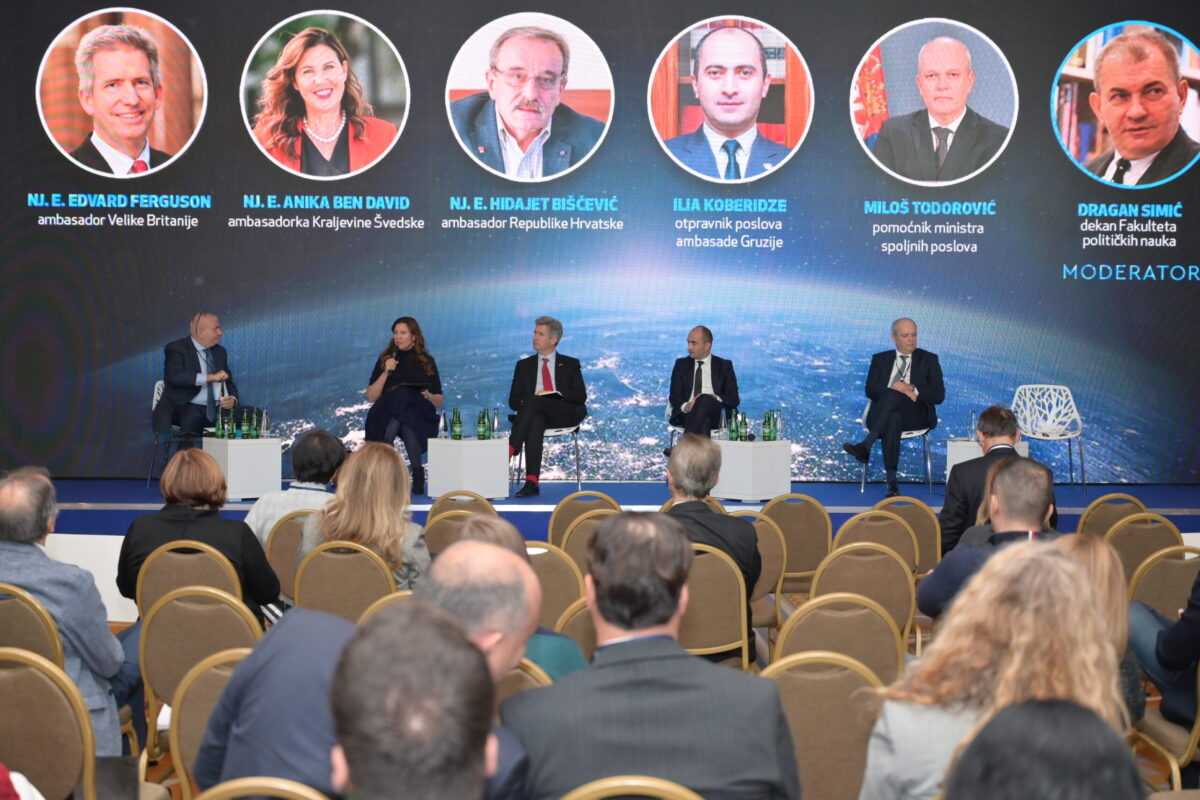rHow will Europe respond to the challenges of 2024?
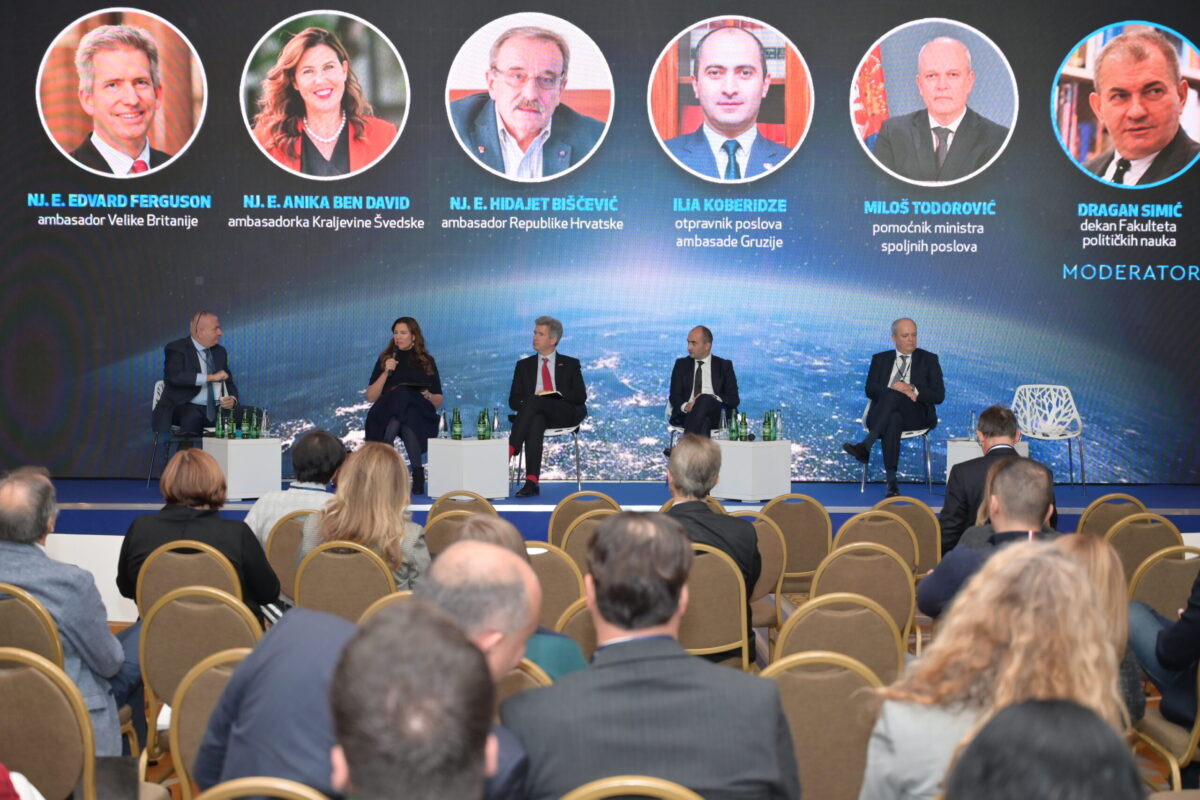
In recent years, the entire globe has been faced with an array of challenges and crises. This situation has reflected itself in Europe as well. In the midst of all of these events, The Ambassador of Great Britain to Serbia, H. E. Edward Ferguson, the Ambassador of Kingdom of Sweden to Serbia, H. E. Anika Ben David, the Chargé d’affaires of the Embassy of Georgia, Ilia Koberidze, and Miloš Todorović, Assistant Minister of Foreign Affairs, sat down together to discuss pressing matters such as current threats to human rights, European enlargement policies and events that marked 2023.
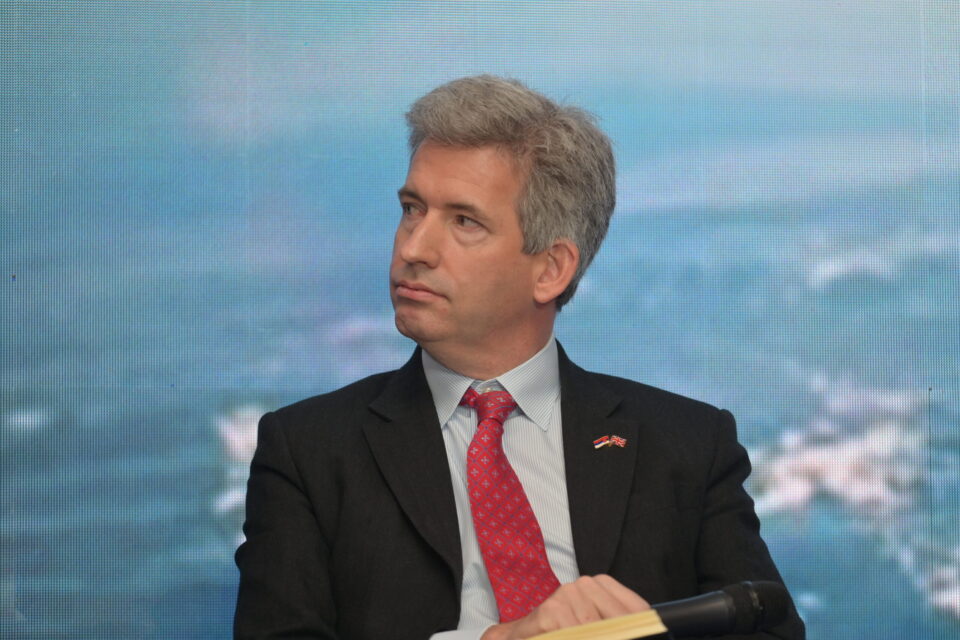
For H. E. Edward Ferguson, The Ambassador of Great Britain to Serbia, European values are shared values, and according to him, this solidarity is what reflects the true core of the European continent, especially in the case of the war between Russia and Ukraine: “We are now outside of the European Union, but we are not outside of Europe. European values are values that we are fully subscribed to. Sometimes you have to stand up and fight for the values that you believe in. I think that’s what we collectively, as Europe, are doing in Ukraine where president Putin is trying to take Europe back to where it was at the beginning of the last century. We have to fight against that idea, that might is right. I think that’s exactly what we are doing and we’re seeing extraordinary solidarity in Europe.”
H. E. Edward Ferguson explained that democracy is under pressure around the whole world. He emphasized that everyone who believes in democracy should stand together against those that want to undermine democratic institutions.
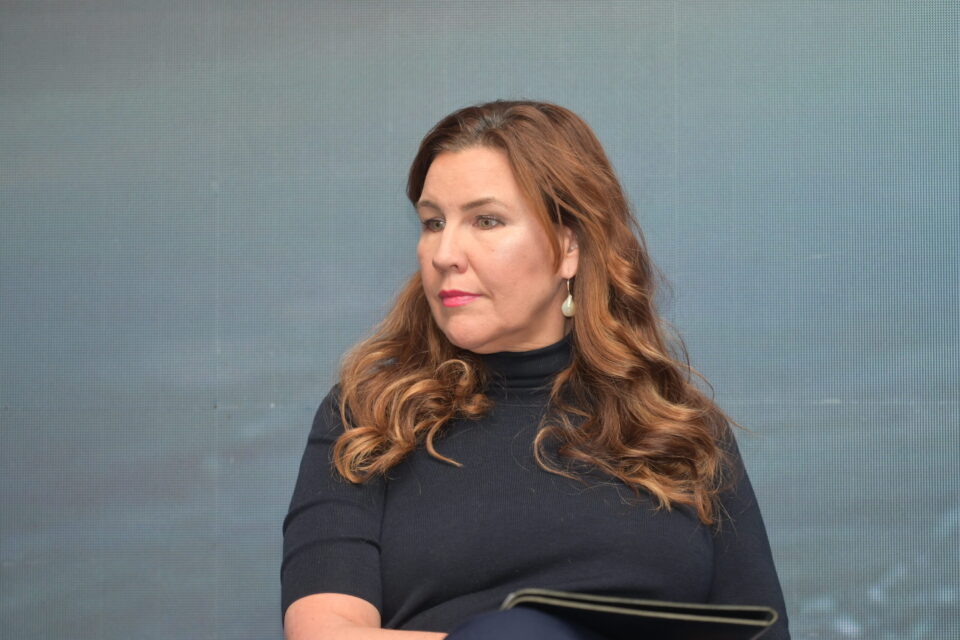
On the other hand, H. E. Anika Ben David, the Ambassador of Kingdom of Sweden to Serbia, has highlighted the importance of the current situation between Russia and Ukraine. She elaborated how this is a defining moment, not just for Sweden or Europe, but to the whole world: “This is not only an important moment for European security and global norms, but also for the world in its entirety. The barbaric war that is now playing out, on behalf of Russia, over Ukraine, is a game changer for us all, it’s a tectonic shift. What ties it to the 75th anniversary of the Universal Declaration of Human Rights is that the rules of the game, which we have all agreed upon, have been severely challenged. It seems to me that these rules have even been forgotten by the larger public.”
Conflict is re-emerging as a tool of statecraft
She added that Russia’s war against Ukraine is a neo-imperialist war that is not only waged against Ukraine, but also against European security, democracy and European values. According to H. E. Anika Ben David, this situation has pushed Sweden to completely shift their longtime policies: “The war of Russia against Ukraine prompted my country to abandon a policy of non-alignment that we had had for 200 years, and we did that in 3 months after the 2nd of February 2022.”
H. E. Edward Ferguson agrees with H. E. Anika Ben David on her remarks about the Russia-Ukraine situation shaping this entire year: “From a foreign and a domestic perspective, the Euro-Atlantic stability and security is under threat thanks to Russia’s illegal invasion of Ukraine. Unfortunately, that situation will endure into the next year.”
He emphasized that this doesn’t exclude other conflicts happening around the world: „Conflicts are proliferating as well. We’ve seen multiple coupes in Africa and of course in recent weeks we’ve seen the awful developments between Israel and Gaza with huge losses of human life. Conflict is re-emerging as a tool of statecraft.”
Technology is something that has been a big topic of this year according to H. E. Edward Ferguson: “We’ve seen AI begin to fulfill the promise that the people have been talking about for many years. Exponential acceleration in technology developments is going to remain an important theme for next year as well.”
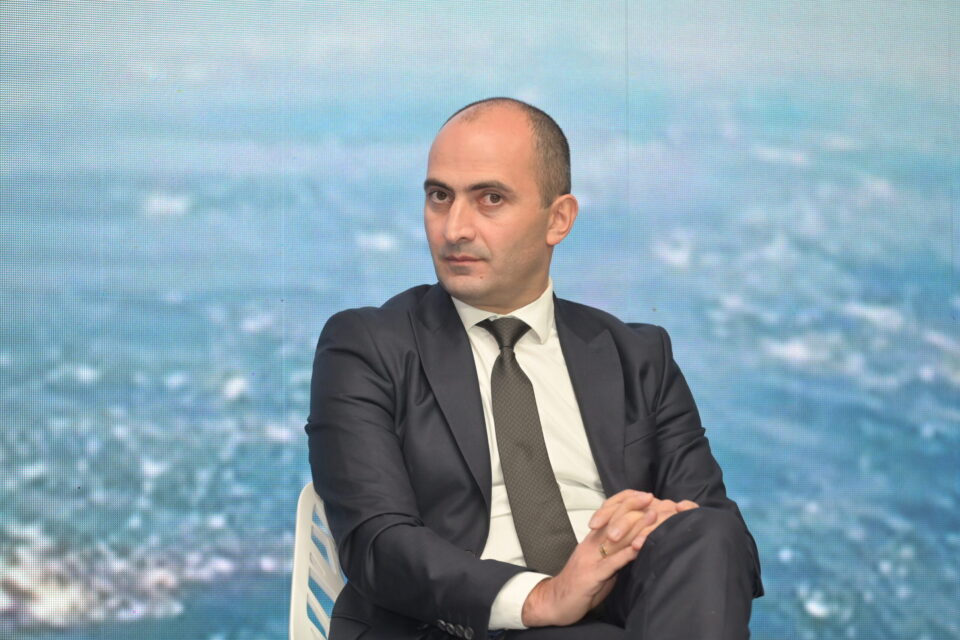
For Ilia Koberidze, the Chargé d’affaires of the Embassy of Georgia, acquiring the candidate status for the EU membership was the most important topic for them as a country. He stated that everyone in Georgia was talking about the European Union. He says that the support for joining the EU was always very high amongst citizens of Georgia, but recently it reached an even higher level: “Support of EU membership was always great, around 70%. Today, it has gotten all the way up to 90%.”
Let’s wait and see whether promoting enlargement will translate into actions for the benefit of our citizens
As for the second event that marked 2023, he agreed with the rest of the speakers that the Russian invasion is one of the key events of the year, but he also added: “I have to remind you that this first happened in 2008 in Georgia. That was the first occupation of Georgian regions, as for today, 20% of Georgian territory is still under occupation. Situation in the occupied regions is very hard. This morning the Minister of Foreign Affairs was mentioning the grave human rights situation in Kosovo and Metohija for local Serbs who have problems with security. Unfortunately, we have the same problems and this year two Georgian citizens were killed by occupation regimes. The Russian occupations in 2008 in Georgia, then 2014 in Crimea and 2022 in Ukraine are all big challenges for Georgia because we are neighbors.”
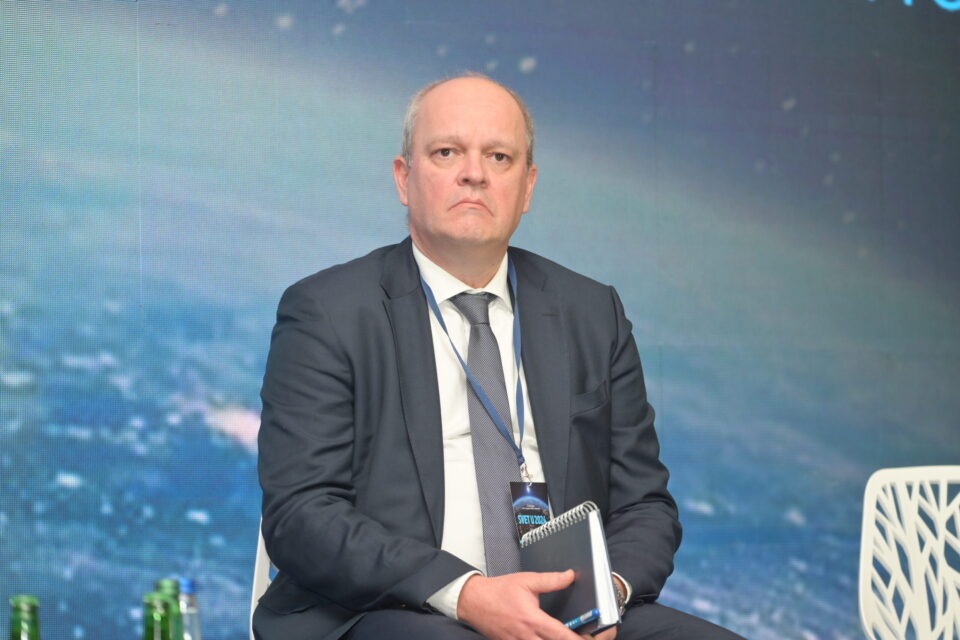
Miloš Todorović, Assistant Minister of Foreign Affairs, said that 2023 was a challenging year for Serbia and he feels like this will remain the case for 2024 as well. He agreed with other speakers that the international agenda was driven by the war in Ukraine and Russia’s attack: ”For Serbia, the challenge is to protect and advance your interests, to stay on the European path, sustain economic growth while being a non-aligned country at the same time. That was the main challenge for us.”
On the other hand, his attention was caught by the current situation with European enlargement policies and potential skepticism that’s rising amongst Serbian citizens: “Now, there is also something else I noticed. I’ve been dealing with European integrations for the past 20 years, I spent most of that time in our mission in Brussels and that could be my impression for this year. I was shocked when I recently read a survey that showed, for the first time I think, that the majority of the population is against joining the EU. These opinions change. If there was a referendum in Serbia I’m certain most would answer with yes, but this skepticism is growing and it is a matter of concern, of course, for us who deal with that and it should be a matter of concern for the EU too. Somebody is not performing as they should and I would put equal blame on us, but on the EU as well. We will see in the next couple of days whether this new situation that was advertised that now is the moment for enlargement will translate into something more concrete, for all of our countries, including Georgia. Whether Ukraine or Moldova will open negotiations, whether Serbia will open the next cluster, whether North Macedonia will open clusters, that goes as well for Albania, Bosnia and Herzegovina, so let’s wait and see whether promoting enlargement will translate into actions for the benefit of our citizens and countries as well.”
